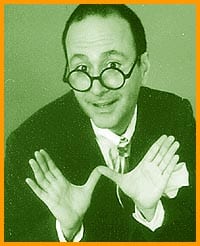Science has revealed that real men hear funny.
A study from the University Of Texas finds that dykes have
a “masculinized” brain response to sound, while gay men have a “hyper-masculinized” response.
“If you think about this in a primordial sense, ‘masculine’ hearing must have developed for hunting,” says gay actor Ed Sahely. “If we have hyper-masculinized hearing that would explain why gay men are
so much better at hearing ‘prey’ coming from a far distance on Church St.”
Sahely also suggests that this same capacity helps homo men hear a can of beer opening or a party announced at super-human distances.
The research study was published on-line in mid-July at the Journal Of Otolaryngology. The researchers are Dennis McFadden, 59, a professor of experimental psychology, and Craig Champlin, 44, an associate professor of communication sciences and disorders.
They measured the brain responses of gay and straight men and women to different types of sounds.
“Our results laid out a continuum,” says Champlin, “with heterosexual women at one end and then homosexual women, followed by heterosexual men and then finally, homosexual men.
“Our working theory is that somewhere in the [pre-natal] developmental sequence homosexual women were exposed to hormones that masculinized their brains, while homosexual males became hyper-masculinized.”
McFadden says that the results are congruent with studies that came out last year that found gay males to have larger penises – another
sign of hyper-masculinization.
“We don’t yet know,” says McFadden, “whether or not these brain
differences would lead to differences in perception. However, it is a
standard belief that when you observe structural difference there has to be a behavioural difference associated, no matter how large or small they are.
“Finding out what these behavioural differences may be – things like does masculinization lead to hearing certain sounds louder? – would be a logical next step for our us.”
In the meantime, comedian and dyke about town Diane Flacks has been conducting her own scientific study. “I have been using the rigorous method of speaking to three friends on the phone,” she claims.
“Masculinized hearing must have something to do with only hearing people if they are saying you are right,” suggests Flacks.
“The hyper-masculinization of gay men helps us to understand the phenomenon of gay Republicans in the US,” says Flacks. “They can’t hear [the politicians saying] I hate gay people, just the I-still-want-gay-money part.”
The researchers see theirs as one in a long list of studies finding physiological differences connected to sex difference.
“There is plenty of evidence that homosexuality isn’t some social or psychological choice,” says McFadden.
He cites the study that found lesbians to have longer index fingers than their straight counterparts, as another recent link in the chain of evidence he’s adding to.
In her survey of lesbian fingers, Flacks found that “with the exception of some high femmes, lesbians tend to have very neatly trimmed short fingernails.
“The original study may have meant to say not that lesbian fingers are actually longer,” she says, “but that we can use them to much greater effect when giving the finger to passers-by.”

 Why you can trust Xtra
Why you can trust Xtra


